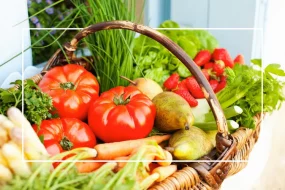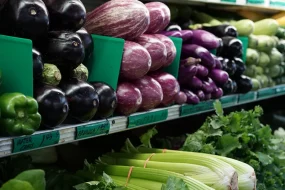
Netflix’s hit docu-series Cheer is officially streaming for a second season, and several of the show’s breakout stars are back again. One is Gabi Butler, who decided to rejoin to Navarro College’s award-winning cheerleading team after the first few episodes had been filmed.
One scene, in particular, shows Butler’s mom cutting up a bunch of watermelon, as the cheerleader explains that she’s going on a “watermelon diet” along with teammate Brooke Morosca for a few days. Butler’s mom cautions that she should be eating plenty of food, given how demanding her workouts are, only to be assured that the watermelon diet is taking place during days when the team is just learning choreography (i.e. not doing anything overly strenuous).
Other than a brief clip of Morosca eating watermelon at practice, that’s about all that’s heard of the watermelon diet in this season—but plenty of people on social media, understandably, have questions.
Butler was asked to explain the watermelon diet during a recent interview with Extra, and she shared a little more insight on why, exactly, she decided this was a good idea.
“You’re not actually fasting, but you’re getting something in your stomach, so you’re not just not having anything,” she told Extra. “It actually is very good for you and removing all that toxic stuff. What watermelon does is it basically clears everything because it is mostly water.”
Butler also said that she tends to do the watermelon diet when she feels like she has been eating really bad. OK, but is there any way this sort of watermelon diet could be healthy? Nutritionists break it down.
First, what is the watermelon diet?
There’s no set formula for the watermelon diet, and there are a few different variations of it floating around online. In general, though, most people use the watermelon diet as a way to rid their body of toxins like Butler mentioned.
This usually involves eating nothing but watermelon for a set period of time (YouTube videos suggest doing this anywhere from three to seven days.) Afterward, people may either slowly add foods back into their diet or just revert back to their normal diet. Testimonials on YouTube and Instagram swear you can lose a decent amount of weight quickly on the watermelon diet, but everyone’s results vary.
Okay, but why watermelon?
“Diet enthusiasts may focus on watermelon because of its good properties,” says Florida-based R.D. Kim Rose. “Watermelon is a naturally sweet, low-calorie food that contains a lot of hydrating water. As a result, eating a diet consisting of only watermelon may make you feel full, temporarily.”
At baseline, watermelon is a healthy fruit, Rose points out. “Watermelon holds several health benefits since the rind, seeds, and flesh are completely edible,” she says. “The rind provides fiber, which is important for bowel regularity. The seeds contain a bit of protein, which is important for muscle growth and maintenance. Finally, the flesh provides the body with a source of hydration, lycopene, and L-citrulline.”
L-citrulline is an amino acid (a building block of protein), and lycopene is what gives watermelon its natural reddish color, and it’s also an antioxidant that’s been linked to a lower risk of cancer, type 2 diabetes, and heart issues, says Jessica Cording, R.D., C.D.N., author of The Little Book of Game-Changers.
“Watermelon is also really hydrating,” says Cording. “It’s a great way to help you meet your fluid needs.” As such, people will likely lose weight on the watermelon diet without being overly hungry because of the fruit’s fiber and water content, says Rose.
Is the watermelon diet healthy?
Ehh, no. “While watermelon does contain nutrients, a diet that contains only watermelon raises a lot of red flags,” says Rose. “This is because while watermelon does contain fiber, some protein, and other nutrients, it is literally a bite of water—over 90% water, to be more specific.”
While you will lose weight on a restrictive diet like this, your body still needs a certain amount of nutrients like carbs, protein, and fat to function normally, continues Rose. “If you eat only watermelon, you’re missing out on a lot of macro- and micronutrients that a full-range diet would provide. Watermelon does not contain enough fat, protein, carbohydrates, nor vitamins and minerals to meet the needs of the human body.”
Plus, the claims that the watermelon diet can help clear out toxins in your body are just bogus, says Cording. Your body already has a natural detoxification system thanks to your liver and kidneys, she points out, and focusing on one particular food like watermelon is not going to impact that.
There’s also no scientific evidence that your body gets rid of toxins with this diet, says Zhaoping Li, M.D., Ph.D., director of the Center for Human Nutrition and chief of the Division of Clinical Nutrition at David Geffen School of Medicine at UCLA.
And, of course, this is an extremely restrictive diet, which dietitians generally don’t recommend as part of a healthy lifestyle. “There is no way that restricting all foods except for one in your diet—no matter how healthy that one food is—can actually be an overall healthy diet,” says Keri Gans, R.D., C.D.N., author of The Small Change Diet. “Any diet that consists of only one food is absolutely ridiculous.”







